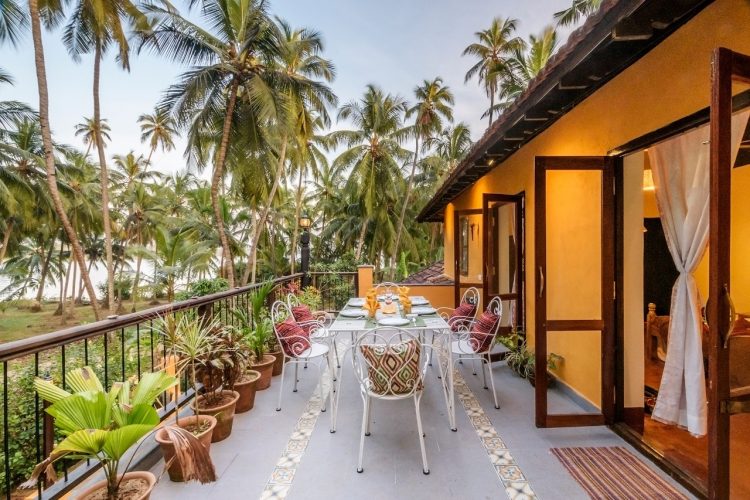
The Indian real estate industry is perplexing for Home Owners right now. On paper, it looks like a seller’s market with property management firms, high-paying renters, and hospitality firms knocking on their door all day, literally! But, no one seems to be becoming any richer, new companies are going belly up, and the market is just not stabilizing.
So what is a Home Owner to do? What are their options in making the best choice for their property – in the long term and short term?
We know the turmoil you are in, and that is why SaffronStays is happy to step in and bust some myths about the market – that taking minimum guarantees is the best choice you can make in a fluctuating real estate market.
If you are a Home Owner and looking to rent out your property, you may have heard the term ‘Minimum Guarantee’ crop up in various discussions. What does it really mean, and why are we suggesting that is not the best road to take?

What does Minimum Guarantee mean in the long-term vacation rental business?
Before we tell you why you should not opt for it, let us understand this term. When an operator or a property management firm comes to secure your property to sublet, they assure you a minimum guarantee. Usually, it is just one part of the whole financial deal.
This means that no matter what happens in the market, you will get an assured sum. Usually, they offer this for the first few years claiming that the property needs to stabilise and they are protecting your interests.
“Minimum guarantee became the norm when large venture capitalists started pouring their money in hospitality startups to create supply. They hoped to build large brands with a large supply that will eventually generate enough demand to cater to the minimum guarantee requirements,” says Deven Parulekar, Founder, SaffronStays.
Since most Home Owners are apprehensive of market fluctuations and seasonal demand in the long-term vacation rental business, they take this deal.
This seems like a huge win: the property is in the hands of a seasoned team, you do not have to worry about demand generation, and there is money in the bank.
But is it really practical? What is the hidden text causing so much turmoil and uncertainty in the hospitality sector?

Pitfalls of Minimum Guarantee deals
While minimum guarantee deals look great on paper and like the ROI you deserve, there are a few issues with this proposition.
- It creates a tussle between the operator’s welfare and the Home Owner’s interests
When hospitality startups or even property management firms want to expand aggressively with multiple minimum guarantee deals in their kitty, it makes them a little desperate. The brands scramble to ensure that they can meet their financial commitments instead of working for your welfare.
For example, brands that have too many properties in a particular area distribute the demand in a way to fulfil their minimum guarantee commitments. So, this means that the minimum guarantee becomes the most you will ever earn because the operator is not even working on filling your property.
- It exploits the property
Minimum guarantee is a deal characteristic of the hotel industry. And it makes sense there because a good operator can host corporate events, marriages, and offer bulk corporate deals to make ends meet.
But a home deserves a little more nuanced approach to maintain its charm and keep it running for longer. When you enter a minimum guarantee deal like a hotel, you open your home to exploitation, damages, and reducing valuation rates.
- Minimum guarantee deals do not fit the luxury segment
When you want your home to be a luxurious long term vacation home, you need a team that worries about its long-term upkeep, the clientele they bring in, and their ability to treat it well. If you have a minimum guarantee deal in place, the operator is most likely to care about quantity rather than quality.
This means your home will not be the luxury vacation rental you want it to be catering to a discerning clientele. And you are most likely to be lost in the crowd and not survive long term either.
- Minimum guarantee is not sustainable
The luxury vacation rental business is seasonal but pays well if you position it right and work on it during the peak season. But what happens in minimum guarantee deals is that the operator is under pressure to deliver throughout the year. This makes it an unsustainable business and may even drive the operator into losses. You want an operator who can stick with you for the long term, not someone who makes promises they can’t fulfil.
So, all in all, minimum guarantee deals have to be seen as the lose-lose deals they are. Neither can the operator work on delivering quality, nor does the home get the attention and love it deserves.
What can you do instead?
Now comes the question – what can Home Owners do instead? What is a good way to lease their luxury properties for long-term vacation rentals?
We strongly recommend entering into a lease agreement with the operators instead of working on minimum guarantees. Even though this will be less than the touted minimum guarantee, it delivers on your ROI expectations fairly and lets them focus on quality instead of running behind quantity.
This way, you have an assured income, a strong lease agreement, a team to maintain the home, and the guarantee that your home is protected against exploitation.
And if you are looking for a team to work with you on this, reach out to partner@saffronstays.com. We would be happy to assist you.
